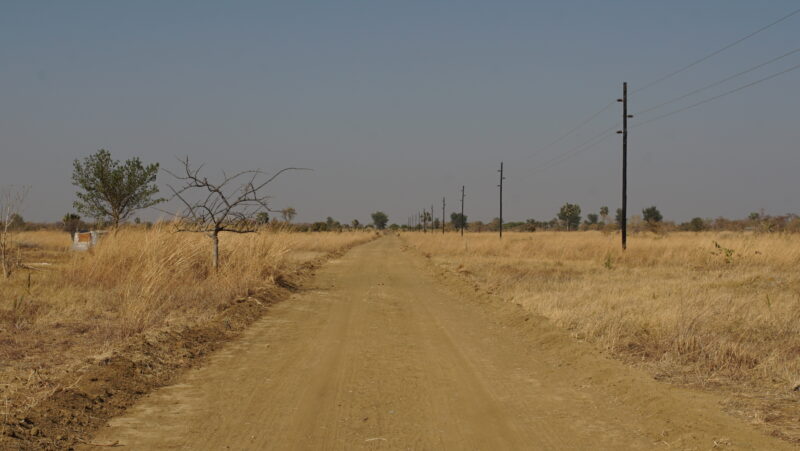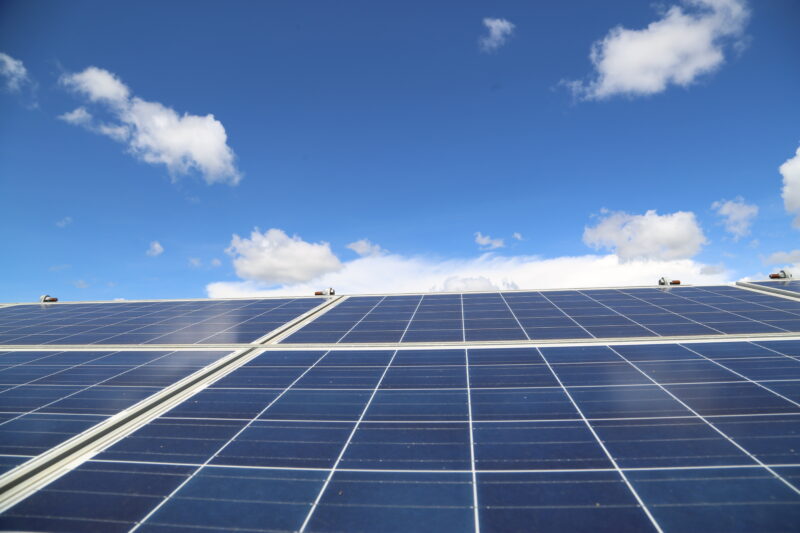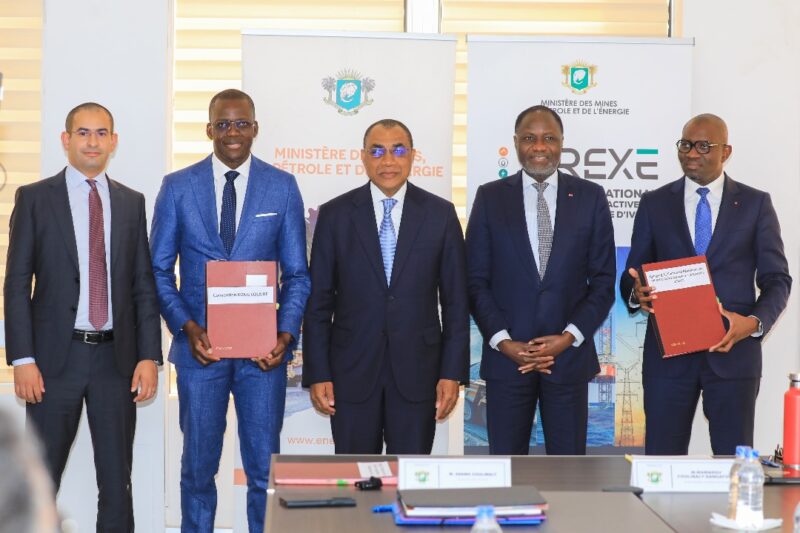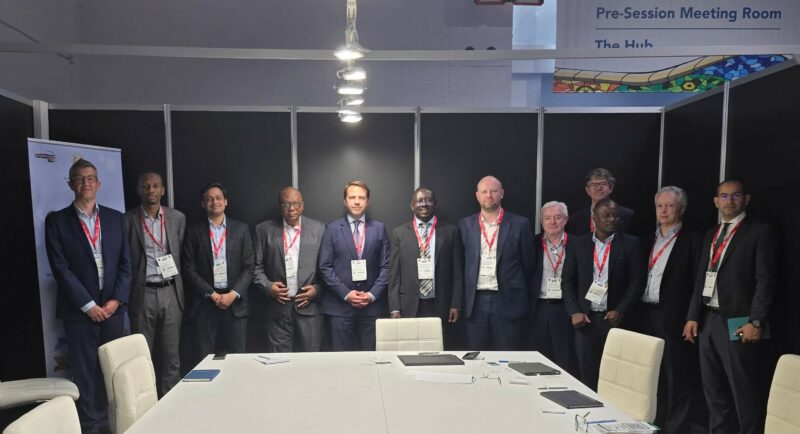SolarQuarter Africa: Interview with InfraCo Africa CEO, Gilles Vaes
7th Jun 2022
This interview with Gilles Vaes was originally published in
SolarQuarter’s March / April 2022 Issue here.
SolarQuarter Africa magazine got an excellent opportunity to interview Gilles Vaes – CEO, InfraCo Africa. He shared details about the company’s offerings and further plans on contributing to the solar growth in the region. He also expressed his thoughts on the solar market challenges and potential in the region.
“Renewables – both on and off-grid – can support governments’ plans for universal electrification whilst also contributing to global goals around the mitigation of climate change and achieving global net-zero.”
Please give our readers a bit of background about yourself and your company – its presence and offerings: I have an energy background and came to InfraCo Africa in 2019 having spent 15 years with Engie working in emerging markets in downstream natural gas and renewable energy. InfraCo Africa is part of the Private Infrastructure Development Group (PIDG) and is supported by the governments of the UK, The Netherlands and Switzerland. A developer at heart, I was attracted by the company’s somewhat unique mandate – delivering sustainable development impact through infrastructure and doing that by mobilising private sector finance into some of sub-Saharan Africa’s least developed countries.
Alongside renewable energy, we invest into water, transport and logistics, housing and agri-infrastructure – often operating at the frontier of new technologies or in geographies where the private sector has previously feared to tread. Yet we do this by operating as a private company, seeking to develop bankable infrastructure projects and to invest our equity into those projects and innovative businesses which have the potential to be profitable and to operate at scale.
We have teams in London, Nairobi and Casablanca and currently have a total of 29 active projects and investments across 13 countries. InfraCo Africa’s dedicated business development, investment and asset management teams can support projects from concept to bankable reality and we also benefit from our ability to draw on the support of PIDG, our sister PIDG companies and our Owners to ensure that our projects can overcome challenges as they arise in order to succeed and thrive.
I am very proud of the fact that all of our projects and investments are aligned with the Paris Agreement on Climate Change. To ensure that we achieve inclusive development impact, we embed high standards of health and safety, environmental and social good practice in our projects. We also seek to ensure that women, girls and underserved communities have access to jobs and opportunities and to the benefits of infrastructure. To ensure that every penny of our Owners’ money is well spent, we have a zero-tolerance approach to bribery and corruption and work with our partners to enhance their own ABC management systems.
What is your assessment of the African Solar Market? What do you think the potential and opportunities are? The African solar market is an increasingly exciting space to work in – at InfraCo Africa we have an established track record in on-grid solar and off-grid solar but even in these areas we are seeing considerable change:
For our on-grid projects – such as the two operational solar plants we have with JCM Power in Malawi – we are seeing innovation and cost reductions for battery energy storage, something which is key to integrating intermittent renewables with existing grid infrastructure.
In the off-grid space, there are increasing opportunities to develop large portfolio projects – such as our Sierra Leone Mini-grid project – and also to develop pan-African off-grid solutions. I also believe that there is considerable scope to expand the productive use of solar power. Both approaches increase demand for clean energy which will, in turn, increase the profitability of off-grid utilities. Our solar-powered irrigation project in Senegal and the water pumping, street lighting and affordable appliance micro-finance applications being advanced by KUDURA Power East Africa in Kenya are just some examples of projects targeting productive use, so too is the initiative to develop solar charging hubs for our NopeaRide electric taxis in Kenya.
There are also exciting developments in the commercial and industrial (C&I) sector which we are following with interest, and, in the solar home systems sector, we recently announced our commitment to provide US$15 million by way of convertible loan notes to a next generation utility, Bboxx, to ramp up the provision of clean, reliable and affordable energy in underserved communities across a number of sub-Saharan geographies.
Your company is active in many African countries, what is a major challenge that you face in most of these countries during the implementation of a project? I would say that a major challenge we are facing right now across sub-Saharan Africa is the impact of the global inflation and logistics crisis – linked to the COVID-19 pandemic and further heightened by the war in Ukraine – which means that project development has become riskier and more costly and that existing businesses are under increasing pressure.
We have unfortunately seen increasing political instability on the continent itself over the past two to three years and, at the same time, we are facing the broader threat of climate change. A very clear example of how climate change heightens the potential risk for project development is the uncertainty around the future hydrological behavior of rivers we may seek to utilize for hydropower.
As such, we expect 2022 to be a particularly challenging year in which large and complex infrastructure developments will come under severe pressure, whilst some businesses may require restructuring efforts. We are committed to working alongside our partners to navigate these challenging times in order to ensure that our projects remain bankable and resilient and are attractive investment opportunities for the private sector in the longer term.
The pandemic is not yet over, and it is also key that we continue to ensure that our teams and the communities close to our infrastructure projects stay safe from the virus. With support from PIDG Technical Assistance, we have been able to implement a raft of hygiene and awareness-raising measures on our projects.
“A ‘win-win’scenario by which governments can achieve greater economic prosperity without incurring a heavy carbon cost.”
Any piece of advice that you would like to give to the governments across the Continent who are looking to grow their country’s renewable energy capabilities? I think engaging with the private sector and keeping those lines of communication open is key. So is developing and implementing clear regulation and “rules of the game” so that the private sector’s perception of risk diminishes. There is a huge amount of expertise and finance available locally and internationally which is looking for somewhere to go. Renewables – both on and off-grid – can support governments’ plans for universal electrification whilst also contributing to global goals around the mitigation of climate change and achieving global net-zero. A ‘win-win’ scenario by which governments can achieve greater economic prosperity without incurring a heavy carbon cost.
Our recent announcement of further investment into Africa GreenCo in Zambia is a great example of public / private cooperation as the Zambian government and national utility, ZESCO, have really engaged with the model and have supported GreenCo’s vision for developing a pioneering renewable energy buyer and services provider in the region.
In the next five years, what is your company’s plan to support and promote renewable energy on the continent? PIDG and InfraCo Africa have long been committed to renewable energy on the continent. In the next five years, I would envisage our continuing our focus on off-grid, a space where people can rapidly gain access to clean electricity to power their homes, schools, clinics and businesses and also expanding the work I discussed earlier around productive use applications for renewables. Battery energy storage will be another key area of focus for us to ensure that new on-grid renewable capacity can integrate effectively with existing grid infrastructure.
We will also continue with our larger on-grid projects, these can take longer to come to fruition but, as with our large hydro projects and the Corbetti Geothermal project, can have real potential to prove that a resource is viable and to deliver significant megawattage of clean power for domestic and business customers.
In order to achieve the scale and pace of change that is needed, we need to look beyond projects to adopt a platform approach. InfraCo Africa will do this by continuing to develop initiatives such as Africa GreenCo that seek to fundamentally transform renewable energy markets, by exploring opportunities to develop local capital markets through vehicles like InfraCredit in Nigeria. Using learning from InfraCredit we are working to develop a new credit enhancement facility in Kenya. We are also working together with Helios Investment Partners to launch a pan-African investment vehicle, Climate, Energy Access and Resilience (CLEAR), which will fund climate-aligned infrastructure and growth businesses.
Finally, as is fundamental to the PIDG mandate, we will continue to innovate at the frontier, developing projects and mobilising private investment into new countries and renewable technologies to demonstrate to others what can be done and to accelerate a just transition to net-zero.
Related projects

Zambia: Africa GreenCo
Promoting an innovative approach to financing renewable energy








